
Animal welfare is the well-being of non-human animals. Formal standards of animal welfare vary between contexts, but are debated mostly by animal welfare groups, legislators, and academics. Animal welfare science uses measures such as longevity, disease, immunosuppression, behavior, physiology, and reproduction, although there is debate about which of these best indicate animal welfare.
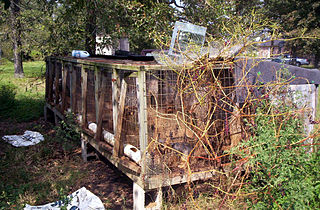
A puppy mill, also known as a puppy farm, is a commercial dog breeding facility characterized by quick breeding and poor conditions. Although no standardized legal definition for "puppy mill" exists, a definition was established in Avenson v. Zegart in 1984 as "a dog breeding operation in which the health of the mill’s dogs is disregarded to maintain a low overhead and maximize profits". They are cited as being a result of increased demand for household pets, especially after World War II. The Veterinary Medical Association of the Humane Society of the United States defines the main characteristics of a puppy mill as "emphasis on quantity over quality, indiscriminate breeding, continuous confinement, lack of human contact and environmental enrichment, poor husbandry, and minimal to no veterinary care."
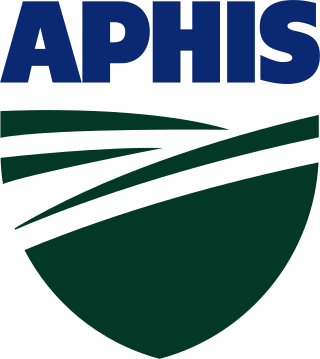
The Animal and Plant Health Inspection Service (APHIS) is an agency of the United States Department of Agriculture (USDA) based in Riverdale, Maryland responsible for protecting animal health, animal welfare, and plant health. APHIS is the lead agency for collaboration with other agencies to protect U.S. agriculture from invasive pests and diseases. APHIS's PPQ is the National Plant Protection Organization for the U.S., and the agency's head of veterinary services/veterinary Deputy Administrator is the Chief Veterinary Officer of the United States.

Cruelty to animals, also called animal abuse, animal neglect or animal cruelty, is the infliction by omission (neglect) or by commission by humans of suffering or harm upon non-human animals. More narrowly, it can be the causing of harm or suffering for specific achievements, such as killing animals for entertainment; cruelty to animals sometimes encompasses inflicting harm or suffering as an end in itself, referred to as zoosadism. Divergent approaches to laws concerning animal cruelty occur in different jurisdictions throughout the world. For example, some laws govern methods of killing animals for food, clothing, or other products, and other laws concern the keeping of animals for entertainment, education, research, or pets. There are several conceptual approaches to the issue of cruelty to animals.

The Hunting Act 2004 is an Act of the Parliament of the United Kingdom which bans the hunting of most wild mammals with dogs in England and Wales, subject to some strictly limited exemptions; the Act does not cover the use of dogs in the process of flushing out an unidentified wild mammal, nor does it affect drag hunting, where hounds are trained to follow an artificial scent.

The Animal Welfare Act was signed into law by President Lyndon B. Johnson on August 24, 1966. It is the main federal law in the United States that regulates the treatment of animals in research and exhibition. Other laws, policies, and guidelines may include additional species coverage or specifications for animal care and use, but all refer to the Animal Welfare Act as the minimally acceptable standard for animal treatment and care. The USDA and APHIS oversee the AWA and the House and Senate Agriculture Committees have primary legislative jurisdiction over the Act. Animals covered under this Act include any live or dead cat, dog, hamster, rabbit, nonhuman primate, guinea pig, and any other warm-blooded animal determined by the Secretary of Agriculture for research, pet use or exhibition. Excluded from the Act are birds, rats of the genus Rattus, mice of the genus Mus, farm animals, and all cold-blooded animals.
Docking is the intentional removal of part of an animal's tail or, sometimes, ears. The term cropping is more commonly used in reference to the cropping of ears, while docking more commonly—but not exclusively—refers to the tail; the term tailing is used, also. The term has its origins in the living flesh of the tail, commonly known as the dock, from which the animal's tail hairs grow.
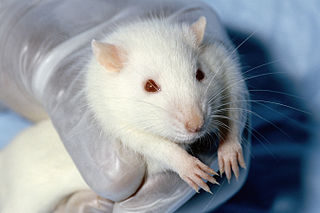
Animal testing regulations are guidelines that permit and control the use of non-human animals for scientific experimentation. They vary greatly around the world, but most governments aim to control the number of times individual animals may be used; the overall numbers used; and the degree of pain that may be inflicted without anesthetic.
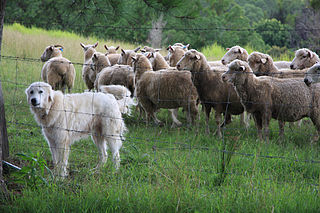
A livestock guardian dog (LGD) is a dog type bred for the purpose of protecting livestock from predators.
The National Animal Interest Alliance (NAIA) is a non-profit organization in the United States dedicated to promoting animal welfare and animal husbandry practices, strengthening the human-animal bond, and safeguarding the rights of responsible animal owners and professionals through research, public education and public policy. The NAIA mission is "to promote the welfare of animals."

The Animal Welfare Act 2006 is an Act of the Parliament of the United Kingdom.
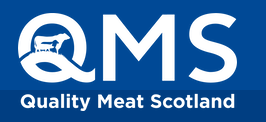
Quality Meat Scotland (QMS) is an executive non-departmental public body of the Scottish Government. It promotes the red meat sector and markets the Protected Geographical Indication Scotch Beef and Scotch Lamb brands.

Animal welfare in New Zealand is governed by the Animal Welfare Act 1999 and a number of organisations actively advocate for both animal welfare and animal rights. Pest control and farming practices have been scrutinised with respect to animal welfare issues. The legality of killing dogs and cats for consumption has also been criticized.

The consumption of dog meat is heavily restricted and soon to be illegal in South Korea. On January 9, 2024, the South Korean parliament unanimously passed a law banning the distribution and sale of dog meat, to take effect in three years. The three-year window allows for farmers to find other sources of income. According to a 2020 survey of South Koreans, 83.8% of respondents reported to never having consumed dog meat before.
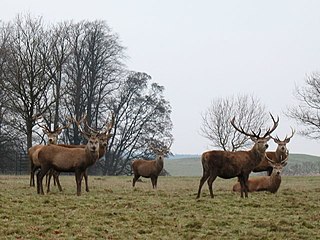
Animal welfare in the United Kingdom relates to the treatment of animals in fields such as agriculture, hunting, medical testing and the domestic ownership of animals. It is distinct from animal conservation.
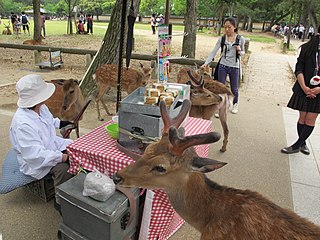
Japan has implemented several national animal welfare laws since 1973, but its protections for animals are considered weak by international standards. Animal activism and protection laws in Japan are mainly focused on the welfare of domesticated animals and farm animals.

This article is about the treatment of and laws concerning non-human animals in Australia. Australia has moderate animal protections by international standards.
Animal rights are distinguishable from animal welfare. In general, the term "animal rights" is the belief that humans do not have a right to use animals for their own purposes. "Animal welfare", on the other hand, is the belief that humans do have a right to use animals as long as the animals are treated humanely. Globally, animals have been gaining importance over the years. Particularly, in Argentina, people have also fought and continue to fight for their rights. Although many people show disinterest in animals, others fight for their protection and wellbeing. Due to the collaboration of several protectionists, both domestic and wild animals have become of great importance to Argentine society. In addition, both population and governments have put emphasis on their rights, the campaigns against animal abuses, and, essentially, the 14.346 Act that has been passed on as regards animal safety in Argentina. Furthermore, there are also different entities that specifically refer to animal rights and animal protection, either by the Argentinian government or by independent organizations; therefore, in Argentina there has been a whole mobilization from around the 1950s aimed at raising awareness among the population about the importance of animals as living beings and how fundamental it is to know about their rights and how to enforce them, since they have suffered a great deal throughout history.
The Animal Welfare Bill was a proposed act of the Parliament of the United Kingdom relating to animal welfare and the export of certain animals. The Bill was sponsored by the Department for Environment, Food and Rural Affairs. The Bill would have specifically prohibited the export of animals for slaughter or fattening for future slaughter.
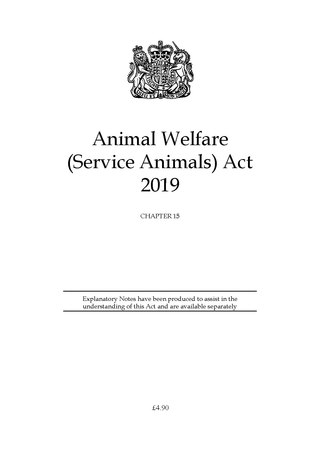
The Animal Welfare Act 2019, also known as Finn's law, is an Act of the Parliament of the United Kingdom.














